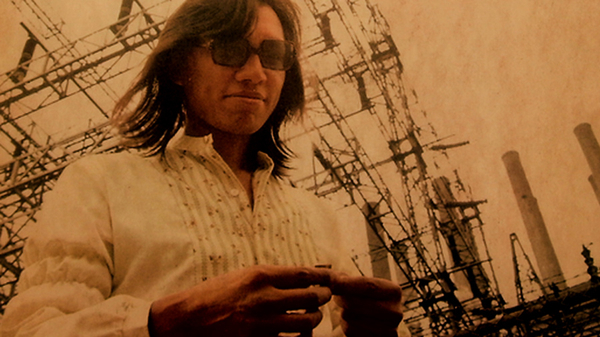Movie review by Greg Carlson
Even though Malik Bendjelloul’s documentary “Searching for Sugar Man” presents its narrative as an enigma concerning the disappearance and rumored suicide of singer-songwriter Rodriguez, once the movie gets underway the true mystery emerges: how could a brilliant artist release a pair of masterful, transcendent albums and not be recognized in his native country for contributions to recorded music? There are many possible answers to that question, and the cynics have dismissively suggested that the quest to uncover a lost, slept-on, or forgotten classic overshadows and overpowers the art. Either way, engaging Rodriguez’s sounds is like stepping into a time machine.
Sixto Diaz Rodriguez, the Dylanesque poet of Detroit’s inner city impoverished and working class, is the very embodiment of the rock cliché “but we’re big in Japan,” except that the international audience in this particular case consisted of anti-apartheid protesters in South Africa. Even as Rodriguez’s sounds fell on deaf ears in America, South Africans like Craig Bartholomew-Strydom and Stephen Segerman assert in the movie that in their country, Rodriguez was every bit as popular as the Rolling Stones, with record sales estimated between half a million and a million copies.
As a story of rediscovery and delayed appreciation, “Searching for Sugar Man” avoids too many tangible villains. The film is justifiably more interested in silver linings and happy endings, but Bendjelloul does see fit to include a section detailing the recording industry’s shameful, execrable treatment of performers who never saw a dime of royalties from record sales. Some follow-the-money sleuthing leads the investigators to producer and Sussex Records founder Clarence Avant, whose on-camera defensiveness and irritability do him no favors regardless of whether he personally profited on the distribution deals that so widely disseminated Rodriguez’s music throughout South Africa.
Aside from the muddiness over Avant’s possible culpability in Rodriguez’s lost earnings, the greatest deficiencies in the film are easily recognizable as deliberate choices made by Bendjelloul. Information is withheld, in large measure to lay the foundation of Rodriguez’s growing status as a legend. The filmmaker also delays the appearance of Rodriguez longer than necessary. Fortunately, the late arrival of Rodriguez in person is not similarly applied to his songs, and there is no question that the recordings are as important to the story as the presence of the man himself. The music is so good, “Searching for Sugar Man” will introduce scores of new fans to masterful tunes like “Crucify Your Mind” and “Cause.”
In addition to the content from “Cold Fact” and “Coming from Reality,” Bendjelloul includes material from Rodriguez’s unfinished third record. “Can’t Get Away” appeared as a bonus track on the 2009 U.S. re-issue of “Coming from Reality,” and it makes one wonder how the songcraft might have evolved had Rodriguez found an enthusiastic audience in his prime. “Searching for Sugar Man” never attempts to address Rodriguez’s feelings about the long, strange trip he took. The singer talks about working in construction and demolition after he left the record business. His daughters describe a failed Detroit city council campaign. No discussion of Rodriguez’s romantic partner or partners is included. “Searching for Sugar Man” leaves so many questions unanswered, Rodriguez emerges at the end every bit as unknowable as he was at the beginning.
